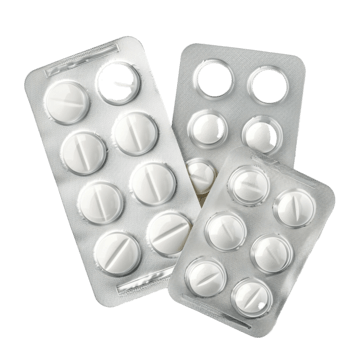Prednisolone

Prednisolone 5mg, 10mg, 20mg, 30mg, 40mg
Prednisolone is a corticosteroid medication used to reduce inflammation and suppress the immune response in various medical conditions. It is commonly prescribed for conditions such as asthma, allergies, arthritis, and certain autoimmune disorders. By mimicking the effects of hormones produced by the adrenal glands, Prednisolone helps alleviate symptoms such as swelling, pain, and redness, making it an essential treatment for managing acute and chronic inflammatory conditions.
Order NowDescription
Prednisolone is a corticosteroid medication that is used to treat various inflammatory and autoimmune conditions. It works by suppressing the immune response and reducing inflammation, helping to alleviate symptoms associated with conditions such as allergies, asthma, and arthritis.
Uses / Indications
- Asthma and other respiratory conditions
- Allergic reactions
- Autoimmune diseases (e.g., lupus, rheumatoid arthritis)
- Skin conditions (e.g., eczema, dermatitis)
- Certain cancers (as part of chemotherapy)
- Inflammatory bowel diseases (e.g., Crohn’s disease, ulcerative colitis)
Dosage and Administration
Adults:
Dosage varies widely based on the condition treated, typically ranging from 5 mg to 60 mg daily, with the lowest effective dose being the goal.
Children:
Dosage is determined by the specific condition and body weight, often ranging from 0.1 to 2 mg per kg of body weight per day, divided into multiple doses.
Note: Dosage should always be guided by a healthcare professional.
How It Works (Mechanism of Action)
Prednisolone mimics the effects of hormones produced by the adrenal glands. It modifies the body’s immune response and inflammatory processes by inhibiting the release of substances that trigger inflammation and immune reactions.
Side Effects
Common side effects:
- Increased appetite and weight gain
- Fluid retention and swelling
- Mood changes (e.g., anxiety, euphoria)
- Difficulty sleeping
Rare/serious side effects:
- Severe allergic reactions (rash, swelling, difficulty breathing)
- Signs of infection (fever, chills)
- Adrenal suppression (fatigue, weakness)
Seek medical attention if serious side effects occur.
Precautions / Warnings
- Inform your doctor if you have diabetes, liver disease, or a history of mental health issues.
- Use caution when taking this medication long-term, as it can suppress natural steroid production.
- Avoid live vaccines during treatment due to the immune-suppressing effects.
Drug Interactions
Prednisolone may interact with:
- Non-steroidal anti-inflammatory drugs (NSAIDs)
- Certain antibiotics (e.g., rifampicin)
- Anticoagulants (may affect blood clotting)
- Diuretics (may increase potassium loss)
Always inform your healthcare provider about any medications or supplements you are taking.
Storage Instructions
- Store at room temperature (20°C–25°C / 68°F–77°F)
- Keep away from moisture and direct sunlight
- Do not freeze liquid forms
- Keep out of reach of children
Missed Dose / Overdose
Missed a dose?
Take it as soon as you remember. If it’s almost time for the next dose, skip the missed one. Do not double up.
Overdose symptoms:
- Severe swelling
- High blood sugar levels
- Mood changes or agitation
- Visual disturbances
Contact a poison control center or seek emergency medical help immediately.
Contraindications
- Allergic to prednisolone or related medications
- Active untreated infections
- Certain fungal infections
Brand Names / Alternatives
- Deltasone
- Prelone
- Orapred
- Hydrocortone (for some indications)
- Generic name: Prednisolone

